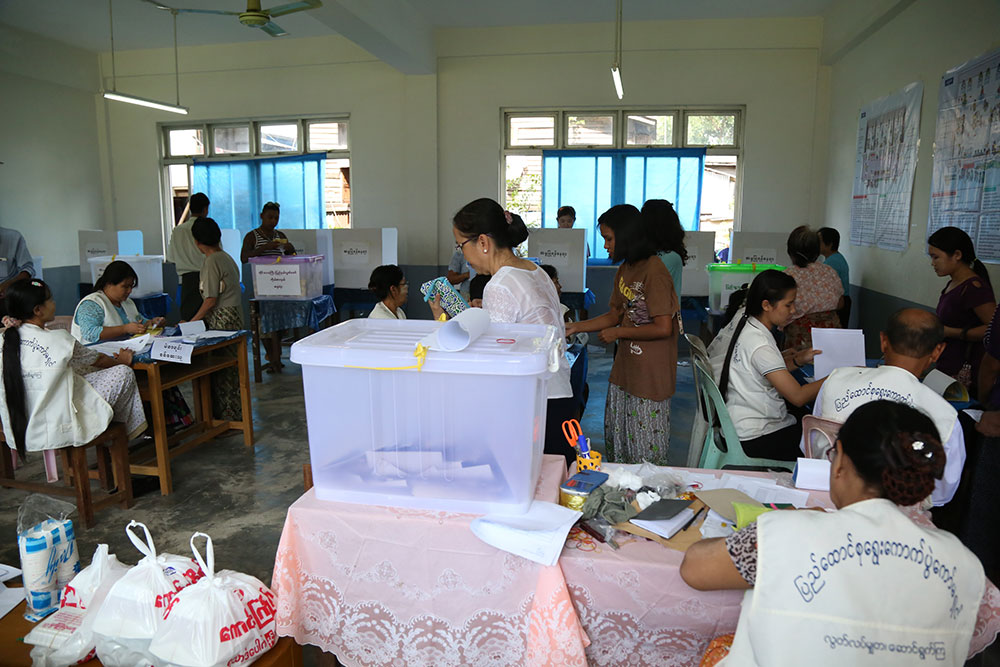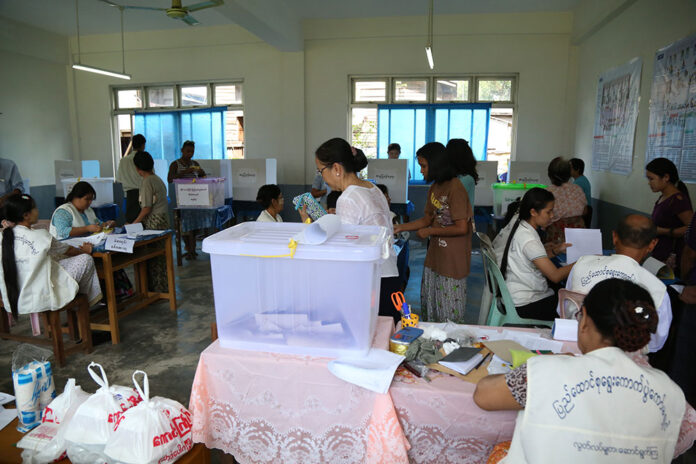Township administrators and education staff assigned election responsibilities by the junta-backed election commission say they fear for their safety as resistance groups begin targeting individuals involved in preparations for the upcoming election.
Resistance forces have warned that anyone participating in the junta-organized election will face consequences. Meanwhile, the Union Election Commission is accelerating preparations to ensure the polls are held as planned.

Local administrators and schoolteachers are among those most directly pressured to take on election duties. “The situation is getting worse daily,” said one teacher’s acquaintance. “Because the junta insists on pushing ahead with the vote, anyone involved feels like they’re living under constant threat.”
The Union Election Commission announced on August 18th that the first phase of the election would be held on December 28th, with additional phases to follow.
In Mon State, junta forces have reinforced checkpoints and tightened inspection measures. Political parties preparing to contest the election have also begun mobilizing down to the village level.
On August 14th, four non-Civil Disobedience Movement teachers attending an election training were briefly detained by the Mon State Revolutionary Force (MSRF) and the Ye People’s Defense Force (YPDF) before being released with a warning.
Following such incidents, some administrators and staff pressed into election duties and sought to withdraw, but the commission has reportedly refused their requests. “Some administrators backed by the military claim they aren’t afraid, but others want to step down. The government won’t let them, so they now fear not only for their own safety but also for their families,” said a relative of one administrator. “Most of them are being forced to cooperate against their will.”
The Mon Human Rights Foundation has warned of a likely rise in human rights violations during the election period.
On July 29th, the junta enacted laws stipulating prison terms of up to three years—or even the death penalty—for those deemed to have obstructed election processes.
Similar concerns are also emerging within political parties. Members say they face pressure to recruit supporters and open offices in compliance with commission directives, while also worrying about their personal security in an increasingly volatile environment.
Photo—Voters casting their ballots at a polling station during the 2015 general election.

